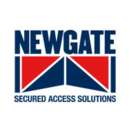Security gates and access-control solutions for business premises
Contents |
[edit] Introduction
The fewer people can access an area, the fewer people can create disruption or damage within that area. It is therefore wise to take the precaution of investing in robust security gates and access-control solutions for business premises.
Here are some specific ways they can help safeguard a business and the livelihood it brings.
[edit] Security gates effectively protect perimeters
Securing the perimeter is the number one rule in security (both physical and digital) and it holds that position for a very good reason. People can only cause problems if they can get access. Premises which are directly accessible from public walkways are at a distinct disadvantage, although they can still use security doors and blinds.
Premises with space between them and the general public can use this space to their advantage by putting up solid barriers, with limited points of entry, for example, in the form of security gates which can be monitored and operated remotely. This not only makes life easier for staff, but also means that they can potentially be opened and/or closed much more quickly if need be.
[edit] Effective access management for GDPR compliance
One of the most basic and fundamental principles of GDPR is the concept of “privacy by design”.
Essentially, this means that the need for privacy (and hence data security) should be built into everything an organisation does and that includes the level of physical security applied to the business premises as good digital security rests on good physical security.
Even if you are a totally cloud-based business, you still need effective physical security to stop an intruder from gaining access to your cloud platform by breaching your on-site equipment and uncovering the passwords.
It is also worth noting that most businesses are probably going to have data which falls outside of the scope of GDPR (which only applies to personal data) but which they still want (or need) to protect. But again, this requires effective physical security.
[edit] Effective access controls keep staff and the public safe
There are all kinds of ways in which effective access controls promote the safety and wellbeing of both staff and the public. In this context, the term “the public”, applies to anyone on a premises who is not directly employed to be there.
In addition to preventing malicious actors from finding their way into sensitive areas, effective access controls also stop people from wandering accidentally into areas where they might be at risk, for example, children deciding to explore commercial kitchens.
[edit] Related articles on Designing Buildings Wiki
- Access to construction sites.
- Barrier.
- CCTV.
- CDM.
- Commercial security systems.
- Electric lock.
- Entry control.
- External doors.
- Fire detection and alarm systems.
- Fire and rescue service.
- How to install an underfloor safe.
- Insurance.
- Intruder alarm.
- Perimeter security.
- Purchasing security gates and barriers.
- Railings.
- Ramps.
- Security and the built environment.
- Types of lock.
- Visitor.
Featured articles and news
Call for greater recognition of professional standards
Chartered bodies representing more than 1.5 million individuals have written to the UK Government.
Cutting carbon, cost and risk in estate management
Lessons from Cardiff Met’s “Halve the Half” initiative.
Inspiring the next generation to fulfil an electrified future
Technical Manager at ECA on the importance of engagement between industry and education.
Repairing historic stone and slate roofs
The need for a code of practice and technical advice note.
Environmental compliance; a checklist for 2026
Legislative changes, policy shifts, phased rollouts, and compliance updates to be aware of.
UKCW London to tackle sector’s most pressing issues
AI and skills development, ecology and the environment, policy and planning and more.
Managing building safety risks
Across an existing residential portfolio; a client's perspective.
ECA support for Gate Safe’s Safe School Gates Campaign.
Core construction skills explained
Preparing for a career in construction.
Retrofitting for resilience with the Leicester Resilience Hub
Community-serving facilities, enhanced as support and essential services for climate-related disruptions.
Some of the articles relating to water, here to browse. Any missing?
Recognisable Gothic characters, designed to dramatically spout water away from buildings.
A case study and a warning to would-be developers
Creating four dwellings... after half a century of doing this job, why, oh why, is it so difficult?
Reform of the fire engineering profession
Fire Engineers Advisory Panel: Authoritative Statement, reactions and next steps.
Restoration and renewal of the Palace of Westminster
A complex project of cultural significance from full decant to EMI, opportunities and a potential a way forward.
Apprenticeships and the responsibility we share
Perspectives from the CIOB President as National Apprentice Week comes to a close.






















